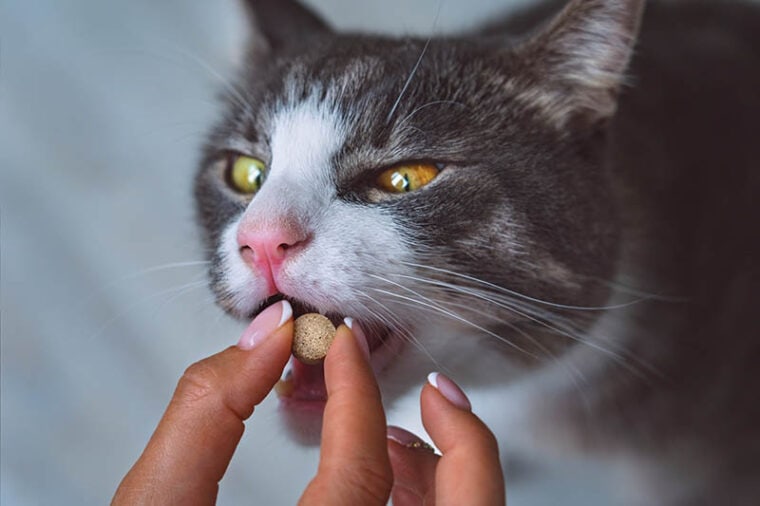
Supplemental vitamins can benefit some cats, but whether you should give them to your cat will depend on your vet’s recommendation and other factors. Your cat will get all the vitamins they require from a well-balanced diet, but in some cases, they may benefit from additional vitamins. In this article, we’ll discuss if and when vitamins are necessary and the benefits and risks of giving them to your cat to help you make an informed decision.

Important Considerations
Before purchasing any immune supplements, it’s imperative to consult with your veterinarian. Healthy cats rarely need an immune boost, and too much of even a good thing can easily turn bad. Many of the supplements on the market are not science-backed, approved by the veterinary community, or legally regulated, and it can be overwhelming and confusing trying to choose the right one. This is where your vet comes in: they are there to give you all the evidence-based information, consider your cat’s particular case, and recommend any supplements your cat may need. Immune supplements are not a replacement for a healthy and balanced complete diet that contains all the nutrients, vitamins, and minerals your cat needs.
This article is not a replacement for veterinary advice, and should not be interpreted as such. An owner’s responsibility is to seek veterinary advice before starting their cat on any supplemental products, as some can even be harmful in certain instances and at certain doses. Immune supplements is a broad term and may involve a variety of products with different functions and purposes.
The 5 Reasons Cats May Need Vitamins
Ideally and in the majority of cases, cats should get all the vitamins they need from a healthy, well-balanced diet. However, even if you prepare delicious and nutritious meals for your cat, they may develop vitamin deficiencies due to an underlying condition or imbalance in food sources and preparation. Vitamin and mineral supplements can be beneficial for specific situations when your vet recommends using them.
1. Vitamin and Mineral Deficiency
If your cat has been diagnosed with a mineral or vitamin deficiency, which is luckily rare these days, supplementing them with vitamins may be necessary. This can happen if the commercial or homemade food is poorly balanced, or if the cat is suffering from a chronic illness.
Your cat may be prescribed a specific vitamin supplement, and they will need to be monitored closely and checked regularly by your veterinarian.
Cats with gastrointestinal diseases, such as inflammatory bowel syndrome, frequently have a vitamin B deficiency and are given vitamin B12 or cobalamin.
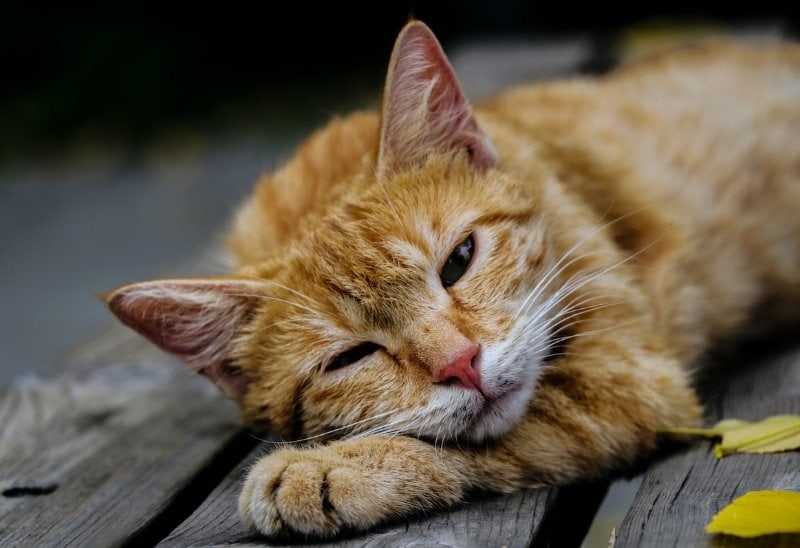
2. If You Feed Your Cat a Home-Cooked Diet
Home-cooked diets are an affordable way to feed your cat, but they are not always nutritionally balanced. If you prepare food at home for your cat, it is important to consult with your veterinarian or a feline nutritionist first. It is best to cook recipes suitable for your cat’s age and designed or approved by your veterinarian, especially if your cat has underlying health conditions.
3. If Your Cat Eats Too Little
Some cats can be picky eaters, while some don’t have a big appetite. This could be because they are ill or just fussy about their food. If this is the case for your cat, they are most likely not receiving a balanced diet and you should consult your vet to see if there is a medical reason for this.
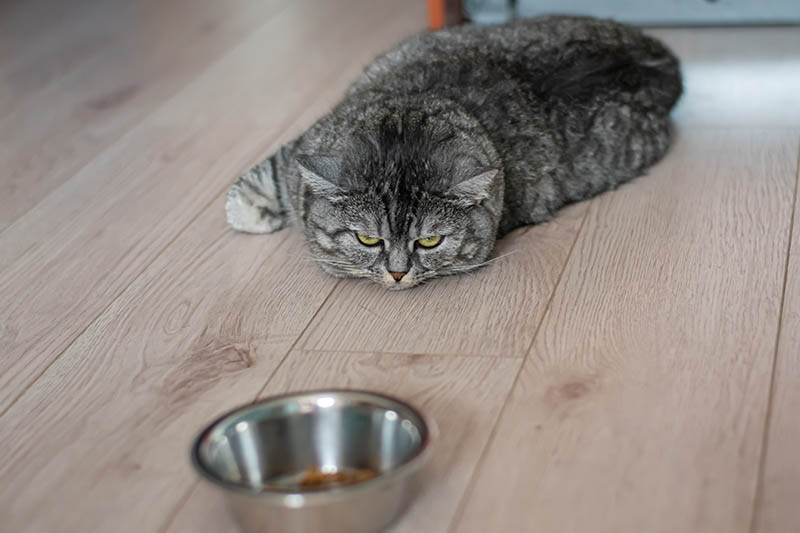
4. Compromised Immune Response
Cats infected with the feline immunodeficiency virus or herpesvirus or a similar illness can be given immune-boosting food supplements, according to your vet’s advice.
Many cats that test positive for FIV but show no signs of the disease can live happily for years after being diagnosed. These cats need to eat a well-balanced diet with adequate levels of nutrients, vitamins, and minerals to help boost their immune systems. They should also be kept indoors to minimize their exposure to diseases and to stop the spread of FIV to other cats.
5. Pregnant and Nursing
If your cat is pregnant or nursing, on rare occasions, they can develop deficiencies that require supplementation, especially if they become pregnant at a young age (younger than 10 or 12 months). Consult your vet to determine if your cat needs a vitamin supplement and which one is best.
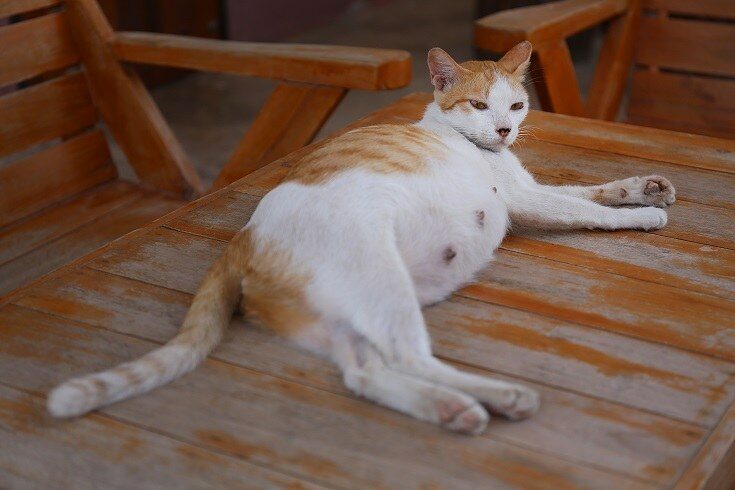

What Are the Risks of Vitamins?
Vitamins are necessary for good health but taking too much or too little can be harmful. If you are considering giving vitamins to your cat, you should always ask your vet first. Whether you choose a single or multivitamin, you must be aware that supplementing a well-balanced diet could create toxicity.
Numerous studies reveal that some supplements have poor quality control, and actually, there is not much of legal regulation when it comes to pet supplements. The FDA doesn’t recognize or regulate them unless they are classified either as food for animals or animal drugs. A drug needs to be approved by the FDA before the company can legally sell it, while food for animals doesn’t need the FDA’s premarket review to be legally marketed.
The National Animal Supplement Council, a nonprofit coalition of manufacturers of supplements for companion animals, has its own labeling system for animal supplements, and their yellow Quality Seal ensures that the products have successfully passed a comprehensive third-party audit and are compliant with NASC. Most vitamins actually fall in the realm of food.
Sometimes, the vitamin can contain more or less than what is stated on the label, and some brands may also contain harmful contaminants. Others may not dissolve in food or water and cannot be absorbed entirely. Having a yellow Quality Seal from NASC gives the buyer reassurance that this is not the case.
Vitamins A and D are the most problematic. The body does well in storing these vitamins but doesn’t do well at eliminating them, and over-supplementing can result in health issues down the line. If your cat doesn’t receive enough vitamin D, it can lead to paralysis, skeletal defects, and severe heart issues, but too much can cause gastrointestinal problems and other signs of toxicity.
Cats synthesize their own vitamin C and generally do not require it in their diet. Cats (and dogs alike) are often given these supplements by mistake when owners assume that they need them as we do. An excess of vitamin C will get excreted from the body in the form of oxalate, which may lead to crystal and stone formation in the kidneys and bladder and can lead to a potentially life-threatening urinary blockage.
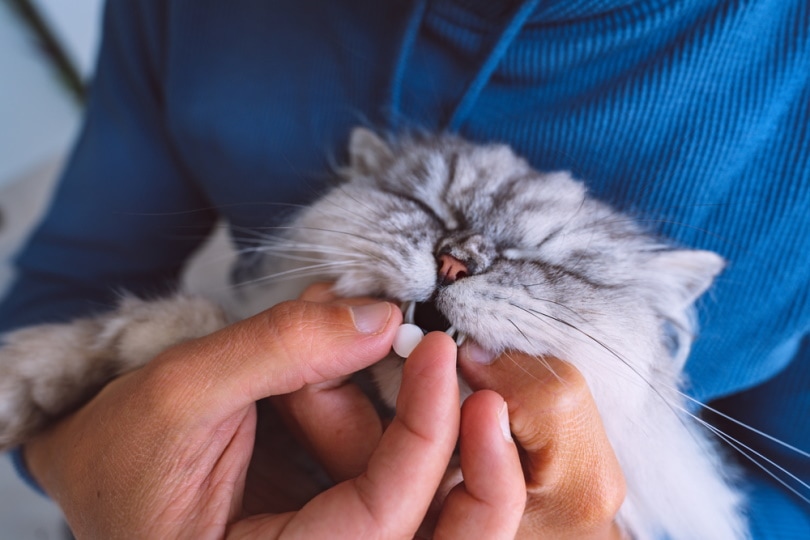
How Do I Know My Cat Has a Vitamin Deficiency?
If your cat is deficient in certain vitamins and minerals, they will have a notable effect on their general health, coat, and skin. This can often occur when a cat is fed low-quality commercial food that lacks the necessary nutrients. When a cat is deficient in essential fatty acids, their skin may become dry and scaly, the fur will mat easily, and ear infections can occur more frequently.
If a cat’s diet is deficient in Vitamin A, it may show in their skin and coat, and they will become lethargic and may suffer from night blindness.
Vitamin B1 or Thiamine is required to metabolize carbohydrates, and if a cat is deficient, they can be affected neurologically. Signs include loss of coordination, falling, head tilting, circling, impaired vision, dilated pupils, tremors, and seizures. Gastrointestinal signs such as vomiting and reduced appetite may also occur.
If you suspect your cat has a vitamin deficiency, talk to your vet immediately so they can run some tests and adjust your cat’s diet if necessary.
Which Cat Vitamins are Available?
There are a variety of single or multivitamins available that you can give your cat, but as we mentioned before, a well-balanced diet should contain all the vitamins and minerals that a cat requires.
Older cats, like humans, may develop health problems. Senior cat vitamins may be required when an elderly cat is unable to absorb certain vitamins or nutrients for whatever reason, or in case of a chronic illness. If you have a senior cat or a cat with a chronic disease, such as a viral infection or a digestive disorder, speak to your vet about an appropriate supplement. Before giving your cat any supplements, your vet will first establish what medical issues they may be experiencing and what treatment they require. The choice of supplements is also based on the food the cat is eating, as most high-quality balanced diets already contain sufficient amounts of vitamins and minerals.

How Do I Know My Cat is Getting a Nutritionally Balanced Diet?
Cats can obtain the nutrients they require from various ingredients, which they can usually acquire from a well-balanced diet tailored to your cat’s lifestyle and age. The primary nutrients that a cat will get from their diet are proteins, fats, carbohydrates, vitamins, minerals, and water.
To ensure that cats get enough nutrients, only buy foods with an Association of American Feed Control Officials (AAFCO) statement on the label.

AAFCO requires that cat food for adult maintenance should contain a bare minimum of 26% crude protein on a dry matter basis to be considered nutritionally complete and balanced. 30% is the very bare minimum for growth and reproduction. On a dry matter basis, the AAFCO minimum for fat in all cat foods is 9%. This is enough for an animal to survive but not to thrive, so commercial cat food will often contain 40% or more protein. Cats fed a diet with 30-38% protein will lose muscle mass over time, and this is not an optimal protein content.
Healthy cat food should contain the following vitamins:
Water makes up most of a cat’s body and is required for nearly every metabolic function, so ensure your cat is getting an adequate amount. Healthy cats should drink 4 to 5 ounces of water per 5 pounds of body weight, including water from their food.

Conclusion
Healthy cats that eat a nutritionally balanced diet will generally not require supplements, but pets with certain health conditions may benefit from taking vitamins. Before giving your cat a supplement, it is vital to determine if they need it in the first place, as giving vitamins to a healthy cat can put them at risk for toxicity. You should always consult your vet to determine if vitamins are necessary and which are best, along with dosage recommendations.
Featured Image Credit: Creative Cat Studio, Shuterstock






